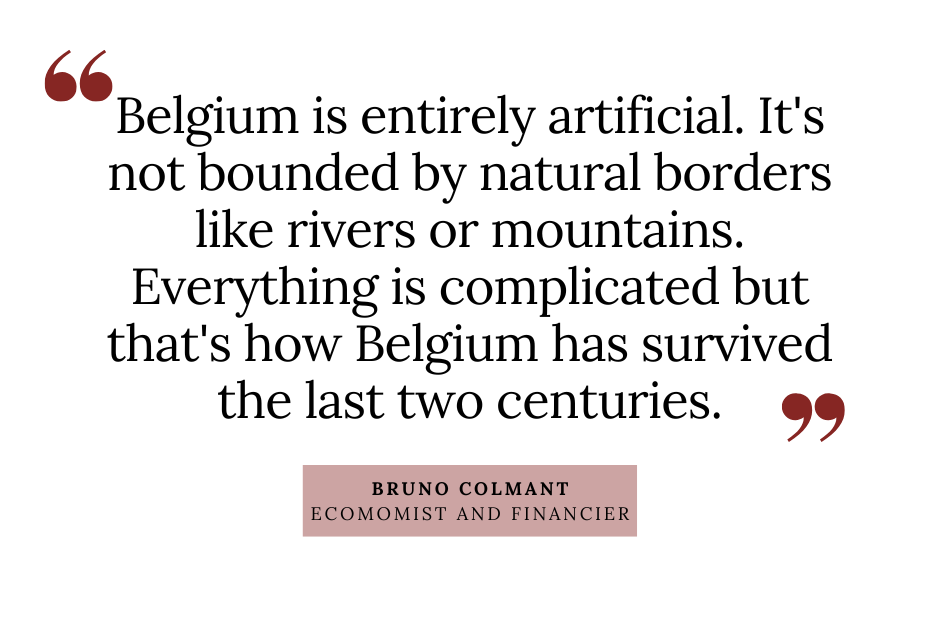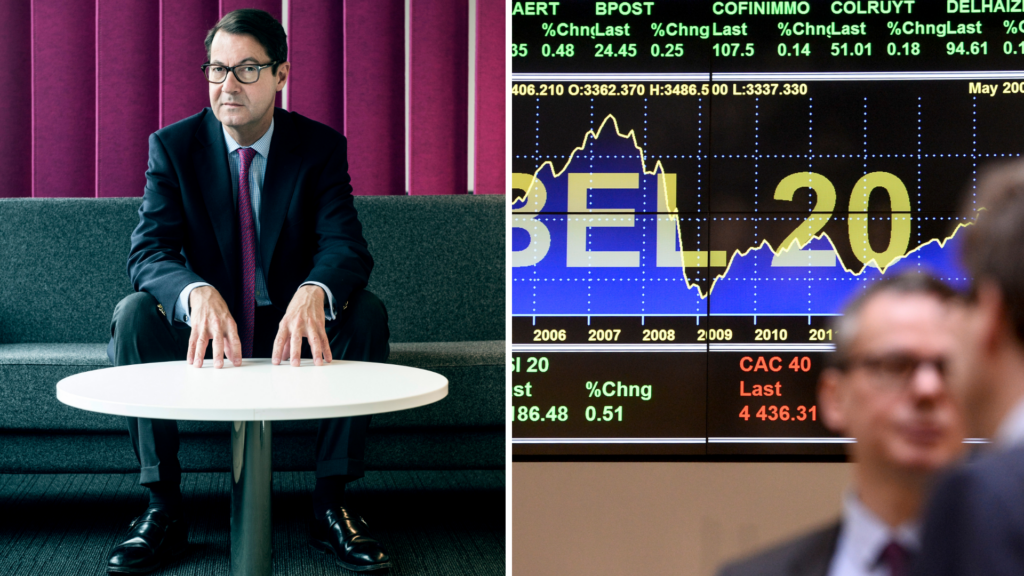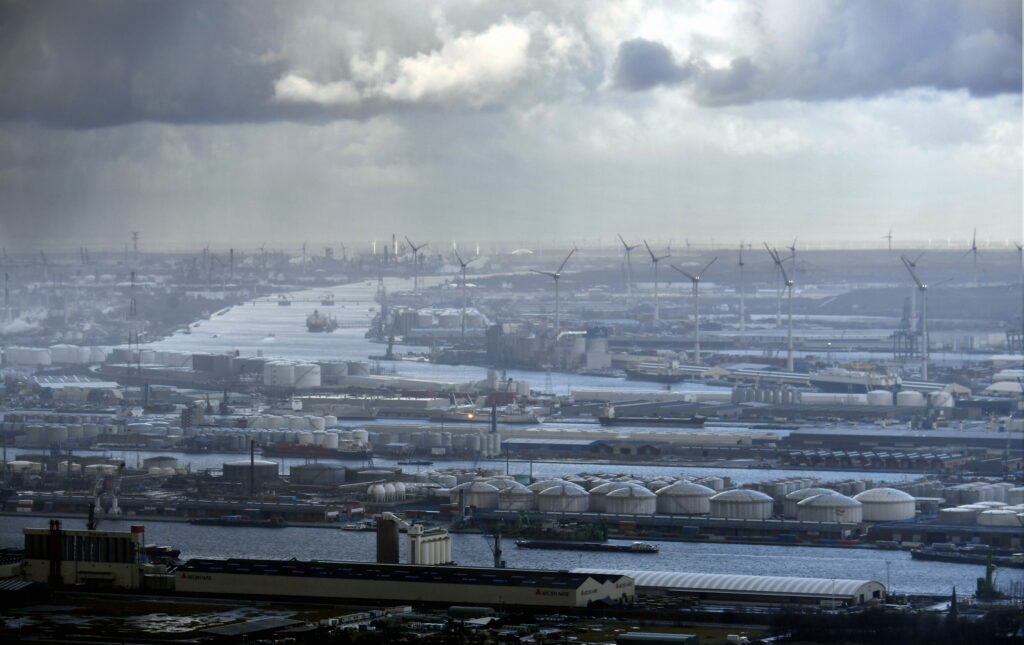Eight months have passed since Belgians went to the ballot boxes to elect the next Federal Government. The formation process has been torturous and so far unsuccessful, as the five negotiating parties argue over Bart De Wever's programme of socio-economic reforms.
No one is under any illusion about the need for decisive action to stabilise national finances: some €20 billion annual savings are needed to prevent the deficits from exploding. But the Arizona parties have so far been unable to align on what these actions should be.
National finances are complicated in any country but in Belgium the division of power makes it even harder to agree on what to tax and how to stimulate growth. It's a topic that Bruno Colmant, economist and one of Belgium's most influential intellectuals, understands better than most. His illustrious career includes a stint as the CEO of the Brussels stock exchange, teaching positions at the ULB and UCLouvain, and the publication of dozens of books about economics.
In conversation with The Brussels Times, he outlined the complexity of Belgium and the key challenges that the next government must address, no matter how impossible the situation seems.
Europe's administration capital
There's no disguising Belgium's remarkable inefficiency. With its three language communities, three regions, and six governments, the process of making decisions is unusually elaborate. It is partly because of this that the country's administrative organs are so sprawling.
By way of explanation for this intricate structure, Colmant highlights how Belgium came into existence. "We are two very different communities rolled into one, which makes it very complicated in terms of administration. Complexity is the price of political peace: this is how Belgium has survived for two centuries."
But although an eye for history helps understand how Belgium became so wrapped up in bureaucracy, the need to streamline the system has never been greater. Businesses of every hue are deploring the reams of "red tape" that they argue stifles enterprise. And the exodus of companies seeking better conditions in the US is a damning verdict on Europe's ability to compete.
And whilst Belgium cannot be held responsible for the EU's failure to attract capital investment, the country bears many of the hallmarks of a sclerotic State unable to respond to the needs of business. "All the problems are piling up," Colmant observes. "We are an ageing population with very high social spending. Young start-uppers see this and are flocking to the US. It's a real issue for innovation."
 At the heart of this sits Brussels – home to not only the EU institutions but also some of the most paralysing political feuds in the entire bloc. "We're supposed to be the Capital of Europe but instead we have been consumed by a battle of egos for eight months."
At the heart of this sits Brussels – home to not only the EU institutions but also some of the most paralysing political feuds in the entire bloc. "We're supposed to be the Capital of Europe but instead we have been consumed by a battle of egos for eight months."
Rather than looking out to the world, the city's MPs are entrenched in a bitter stalemate. This now revolves around the francophone Socialist Party (PS), which refuses to enter negotiations so long as the Flemish nationalists N-VA feature in the Dutch-language electoral college. Colmant lambasts the "incomprehensible" intransigence of PS, expecting it will soon trigger a strong public outcry from exasperated voters.
But the impact on the region's fortunes – which are desperately overdrawn – can be seen already. The Brussels Chamber of Commerce told The Brussels Times in December how the lack of governments is seriously undermining investment. It's a sentiment shared by Colmant, who stresses the reputational damage Brussels is suffering at the hands of obstinate political groups. "Things like cleanliness and security on the streets really matter," he sighs. "Companies see this and think twice about setting up here."
The wake-up call
Belgium is infamous for its hopelessly long formation talks but the world won't wait the country to get its act together. Attitudes across the EU are changing as established trade and security agreements are called into question, demanding a response if there's to be any hope of protecting living standards.
Nothing could be more of a reality check than the return of Donald Trump, which Colmant portrays as a powerful lesson in "management politics" that will change politics on the Old Continent. "The whole world will be forced to become more visionary, more bold," he asserts. "Europe in five years will be very different from Europe today. I'm sure of it."
Rather than contrasting economic performance, Colmant illustrates the chasm between Belgium and the States with the simple observation: "If you ask a young person in the US what Trump's project is for America, they know. Ask the same question to a young Belgian and what would they answer?"
He points to Trump's ambition to inject a "gigantic" $500 billion into AI – a staggering investment that would act as a honey pot for the brightest young minds. And although Elon Musk has argued that the US doesn't actually have the money to pay for this, the sense of purpose and mobilisation of capital sets an example for Europe, which Colmant criticises for being too shy to invest.
Prosperity depends on a clear direction, the economist believes. "Yes, that will mean increasing public debt. And it will bring some inflation as well. But at least it will create jobs for tomorrow."

Colmant has been CEO of Belgium's stock exchange and is a member of the Royal Acadamy of Belgium. Credit: Belga
What hope for Belgium?
Despite the difficulties that confront Europe and Belgium, Colmant describes himself as an optimist. In a best-selling book he co-authored last year titled The Belgium of Tomorrow, 24 key challenges are assessed that make a positive case for the country's future. It strikes a hopeful tone in its approach to the historical and social phenomena fundamental to modern Belgium – the environment, elections, social services, and the monarchy, to name a few.
"Simplify Belgium and stimulate entrepreneurship," sums up the national mission in a sentence. "We have to deal honestly with poverty and ageing, but in a spirit of sympathy and solidarity."
With the Arizona parties currently discussing central economic questions, pensions are a major question. Already the retirement age has been lifted and will rise to 67 in a few years. For Colmant, it makes little sense to raise it any higher, evoking the difficulty of keeping older people in work as their skills are outdated. This makes it imperative to rethink education.
But the country's geographic location is an underappreciated asset, he argues. "Belgium is a country of transit surrounded by the big economic powers of Europe. This allows us to take a cut of the goods and capital that cross the country." As such, the national fortune is pulled up by its larger neighbours. But to realise the full potential of its favourable position, Belgium must urgently settle its internal conflicts and face outwards.

